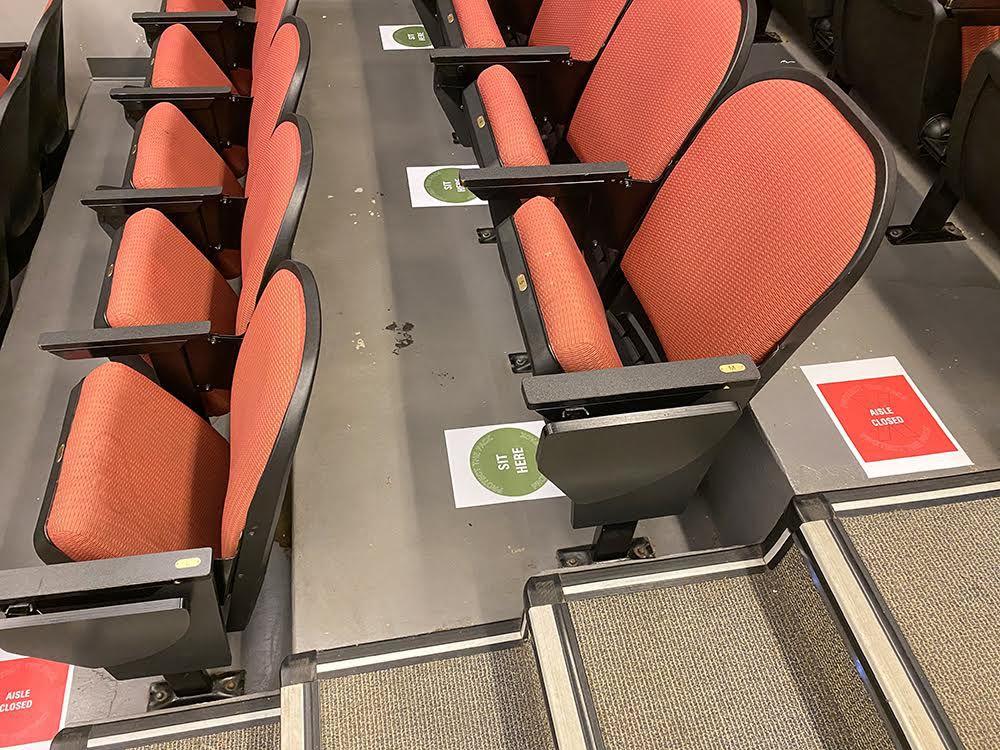Announced on March 10 by Chancellor Randy Woodson, most classes for the fall 2021 semester will be face to face again after two and a half semesters of online instruction. However, there will still be distance education options available, according to the course catalog.
Barry Olson, the associate vice chancellor for business administration in DASA, said that because of the stabilization of positive COVID-19 tests and the increase in availability of vaccines for faculty and students, DASA is currently planning to substantially increase the amount of in-person classes in the fall and decrease the amount of online classes. The exact schedule will not be finalized until closer to the start of the fall semester.
JaeKouk Ko, a third-year studying political science and science, technology and society, says that he hopes that DASA will prioritize classes that require hands-on experience for in-person sections.
“I hear a lot of things right now on the news and stuff about a lot of new graduates who are not being able to get jobs,” Ko said. “Like companies are saying that they’re underqualified because they did a necessary lab online and don’t have the hands-on experiences.”
Kalan Dixon, a first-year studying international studies, hopes that classes such as math and science will be in person as well.
“People like me who are visual-kinesthetic learners have to see someone do it in front of them and then do it exactly like them,” Dixon said. “I think classes like math and science and stuff like that are super hard to learn online if you are that type of learner.”
According to Olson, one thing to keep in mind while choosing classes is that there is a possibility that all in-person classes will still be subjected to COVID-19 community standards such as mask-wearing and social distancing.
“Just because you are face to face doesn’t necessarily mean that we wouldn’t have masking expectations,” Olson said. “That’s something that we just don’t know as a nation, or really as a world yet.”
What to expect with in-person classes for the fall is heavily dependent upon mass vaccination rates and trends with COVID-19 testing. Dixon says that if the University continues to uphold the current community standards, then she would be more comfortable considering in-person classes.
“I do think that people getting the COVID vaccine and stuff like that and NC State taking precautions like giving testing if people don’t have the COVID vaccine, and even if they do have the COVID vaccine, they should still wear their mask,” Dixon said. “I think that would influence me more to be on campus next semester and do in-person classes.”
Olson says that DASA has learned a lot about communication and what students need during this past year and has applied those lessons to the fall 2021 course catalog.
DASA also recognizes that students want to come back in person. Olson says that most of the staff have similar feelings and are doing everything they safely can to return to normalcy.
“None of us joined this career and said, ‘We are so excited for the day when we have to go on 10 Zoom meetings in a day.’ None of us said that,” Olson said. “We want to actually experience life… seeing you in the dining hall, seeing you at Talley, doing programs in Witherspoon and doing all of those things. We want to be engaged in all of that, and so I guess that the final lesson is that we all value human contact as much as you do and we all want to get back to normalcy too.”
One of the challenges in giving students a definitive answer about how classes will be delivered in the fall is that DASA is not the only sector in charge of deciding whether a class will be online, hybrid or in person.
According to Olson, decisions about individual class sections or specific classes within colleges are up to individual college leaders such as deans, associate deans and department heads. The goal is to give professors and individual colleges more flexibility in meeting the unique needs of their students.
Olson warns students though that even if class deliverance is face to face next year, not all student-faculty interactions may be.
“What you might find more commonly might be, while your class experience is expected to be face to face, you may have more flexibility and freedom with your faculty to do an online office hour if you need them,” Olson said. “You may find that some of our services, say in academic and student affairs, may continue to be more of an online option, you know, in terms of things [like] counseling options or telehealth.”
Overall, the biggest challenge that Olson foresees encountering in trying to return to traditional classes are COVID-19 outbreaks on campus and NC State’s uncertainty of how severely the student body will be affected.
“Coronavirus is still going to be there,” Olson said. “It’s going to affect people in very, very different ways. So if it affects us more like a seasonal cold, well then, we are going to be OK. If it affects us more like a harsh flu outbreak, you know, then we need to consider the quarantine and isolation concepts that we’ve had in place for the past year. If we had an outbreak of COVID that happened on a floor, what do we do with that? It all depends on how many people are vaccinated.”
If a student has questions about whether or not a particular class will be in person, Olson recommends asking the class professor exercising patience.
“Don’t expect that they know everything yet because they simply don’t; none of us do,” Olson said. “We are simply doing the best job that we can to forecast and to really try and get into the classroom.”













